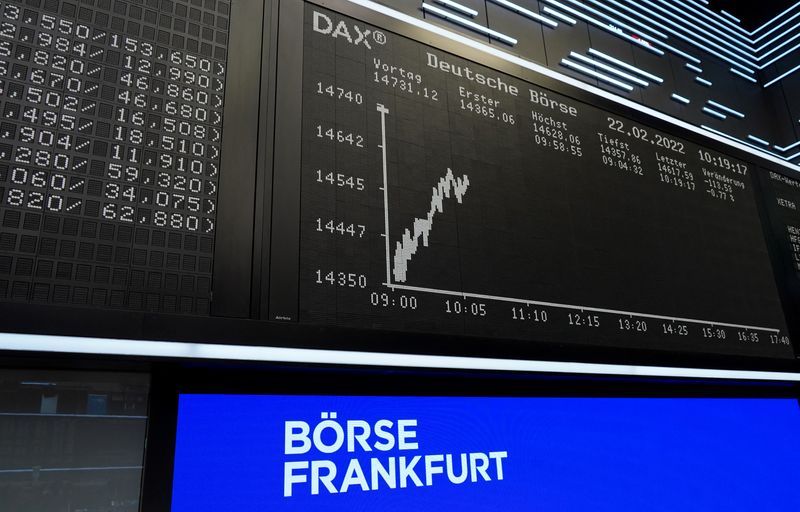Beamr video compression achieves up to 50% improvement for AVs
By Peter Nurse
Investing.com - European stock markets traded firmly higher Thursday, helped by stronger than expected German growth data ahead of the start of the widely-awaited Jackson Hole economic symposium.
By 03:50 ET (07:50 GMT), the DAX in Germany traded 0.7% higher, the CAC 40 in France rose 0.8%, and U.K.’s FTSE 100 climbed 0.7%.
The German economy grew by 0.1% quarter on quarter and 1.8% on the year in the second quarter, beating expectations for stagnation in the three months to June, propped up by household and government spending.
This growth, despite the continent’s ongoing energy crisis, has helped sentiment ahead of the start of the U.S. Federal Reserve’s annual gathering in Jackson Hole, Wyoming later Thursday.
Markets are bracing for the U.S. central bank to reaffirm its commitment to beating inflation, even at the expense of sending the world’s largest economy into a deep slowdown, and Fed Chair Jerome Powell's speech on Friday is likely to set the tone for months to come.
The German Ifo business climate index is also due later in the session, and is expected to show a fall to 86.8 in August, down from 88.6 the previous month.
Investors will also study carefully the minutes from the European Central Bank's last policy meeting, as this was the meeting that saw ECB hike interest rates by a bigger than expected 50 basis points last month.
In corporate news, Novartis (SIX:NOVN) stock rose 0.6% after the Swiss drugmaker announced it would spin off Sandoz and list it on the Swiss stock exchange to create the leading European generics company.
BP (LON:BP) stock rose 2%, helped by higher crude prices despite the oil giant being forced to close some of its units affected by an electrical fire at its important Whiting refinery in Indiana.
Yara International (OL:YAR) stock climbed 0.8%, benefiting from the stronger overall tone even as the fertilizer giant said it will cut its output further due to record high gas prices.
Oil prices edged higher Thursday, helped by ongoing supply tightness as well as signs of strong demand in the U.S., the world’s largest consumer.
Data released Wednesday by the Energy Information Administration showed that U.S. crude inventories fell by about 3.3 million barrels last week, much more than expected, while the volume of crude and its products exported from the U.S. last week was the highest in a series going back to February 1991.
The potential for the Organization of the Petroleum Exporting Countries and its allies, a group known as OPEC+, to cut production to support prices has also added support to the market, while talks over the revival of a nuclear deal with Iran, which could lead to exports from the Persian Gulf country hitting the global market, remain stalled.
By 03:50 ET, U.S. crude futures traded 0.6% higher at $95.50 a barrel, while the Brent contract rose 0.9% to $102.08.
Additionally, gold futures rose 0.8% to $1,775.55/oz, while EUR/USD traded 0.4% higher at 1.0002.
